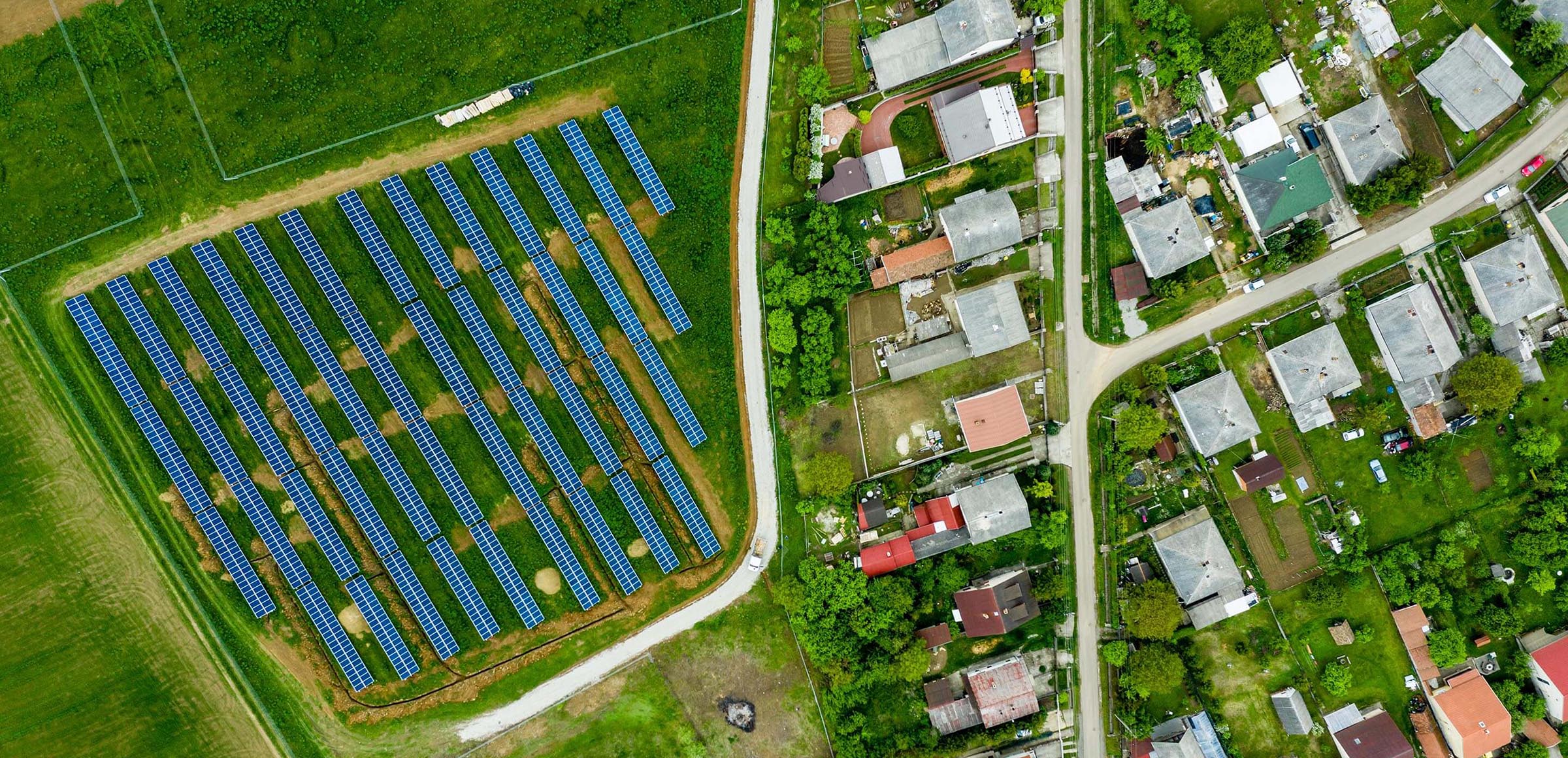
By Natasa Ioannou
The production and consumption of energy from Renewable Energy Sources has been one of the key issues discussed in recent months. With increased electricity bills and the public on the verge of energy poverty, the energy transition to renewables is now the only solution.
The proposed ways forward concern RES projects that produce energy, but also a new solution, perhaps the newest form of production and consumption of our electricity: energy communities. These solutions have significant differences in philosophy, operation, application and social impact.
What do we mean by RES Energy Projects?
Example: A large photovoltaic park built in a remote area, providing the generated electricity into the national grid for a certain price.
Energy projects refer to projects and infrastructure designed and implemented to produce energy from renewable sources. These include wind farms, photovoltaics, etc., built by companies or other bodies that channel energy through the grid and essentially sell the energy to the electricity authority.
What are Energy Communities?
Energy communities are a democratic, collective and cooperative approach to energy production. They are collective groups of people, small businesses and local authorities and organisations working together to produce, consume and manage their energy locally. Energy communities have a more democratic and participatory character, as they have members who participate and actively co-decide on the actions of the energy community.
These communities emphasise the decentralisation, self-sufficiency and sustainability of our electricity and aim to reduce electricity bills, reduce carbon emissions and socially empower the public who now have energy in their hands. It is the basis for the active role of residents in energy production and management, promoting energy democracy.
An example of an energy community is a group of local residents who decide to create a community to install and manage a photovoltaic park. The energy produced is distributed to community members for personal consumption, while any surpluses can be sold to the grid for additional revenue that is returned to the community and finances its actions. That is, the benefits are not only limited to energy production but also to strengthening the local economy and improving the quality of life of community members.
The main and most important differentiation between RES projects and energy communities is the active participation of the public, which is the basis of energy democracy and autonomy. Without the active participation of residents, there is no energy community but we have an energy project for RES production. An energy project can only evolve into an energy community when it includes people, and not when it has them (even vulnerable ones) only as recipients of produced energy.
If a municipality operates an energy project to provide energy to vulnerable groups in its region, without involving residents (vulnerable or not), that is not considered an energy community. The project is simply a social energy project. To have an energy community, the municipality should involve groups of residents who will participate in decisions through democratic processes regarding the production and distribution of energy from the project.
On the same basis, an energy project whose infrastructure degrades or destroys the environment (by cutting down trees or levelling mountain slopes), offers benefit only to a private individual or a portion of individuals, produces energy to serve a building/marina/tower/company/state organisation, without the public being members is not an energy community.
Next Steps: Creating Energy Cafés
Friends of the Earth Cyprus and the Centre for Social Innovation are organising a series of interactive and participatory energy cafés aiming to create energy communities. These interactive meetings will focus on the benefits of energy communities, practical processes and actions for the creation of an energy community, and most importantly on laying the foundations for meaningful change and energy democracy. The cafes are open to everyone, and participation is free.
Join the link here: https://forms.office.com/e/rzZqDLDmqM and let’s join hands towards Energy Democracy!
Natasa Ioannou, Friends of the Earth Cyprus


